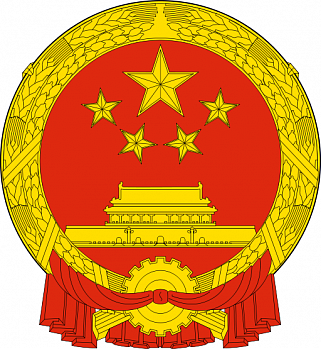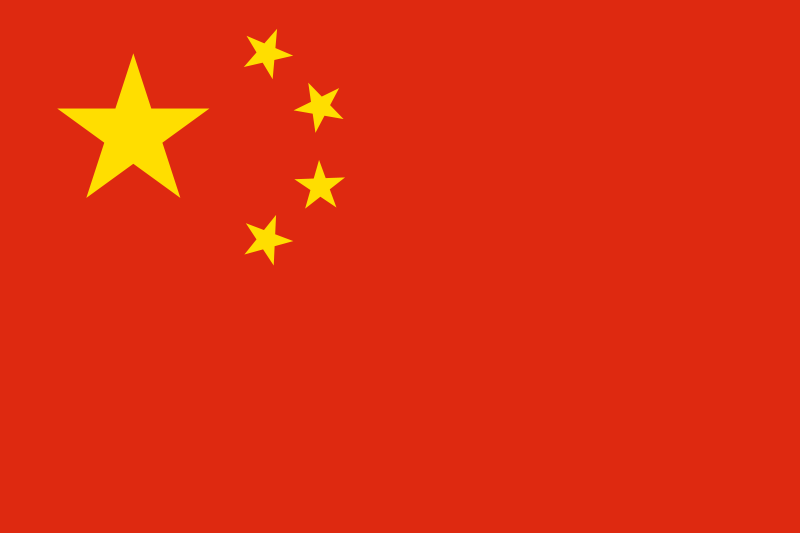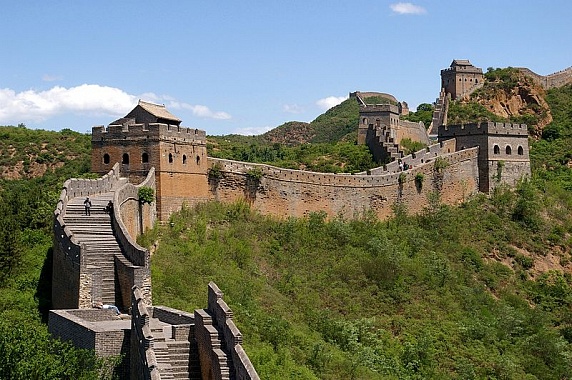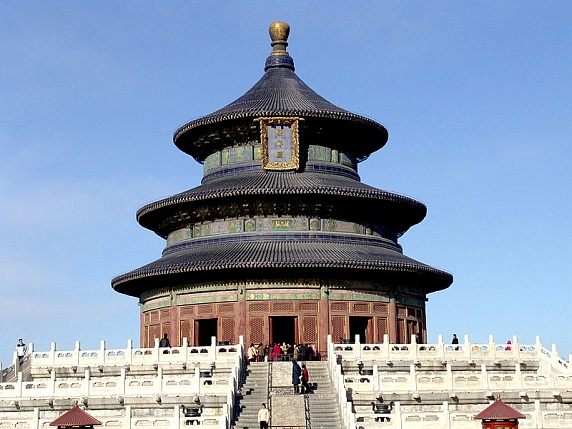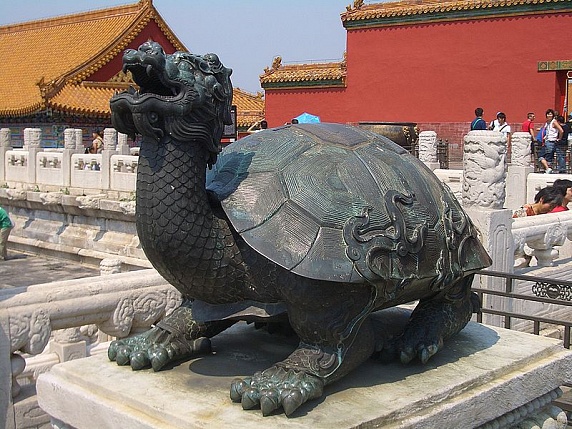 the Peoples Republic of China
the Peoples Republic of China
Foreign Minister Sergey Lavrov’s remarks during a joint news conference following talks with Member of the State Council and Foreign Minister of China Wang Yi, Moscow, April 5, 2018
Ladies and gentlemen,
The talks with Member of the State Council and Foreign Minister of China Wang Yi took place in a friendly and trustworthy atmosphere and were fairly substantive. I would like to use this opportunity to congratulate my colleague once again on his appointment to the high ranking position of member of the State Council of the People’s Republic of China.
We noted the unprecedentedly high level of Russian-Chinese comprehensive partnership and strategic cooperation. We pointed out that regular and intensive dialogue between our leaders is giving a powerful impetus to our cooperation. We discussed a schedule for bilateral political contacts, primarily at the top level. In particular, our heads of state will have an opportunity to meet not only in Russia and China but also on the sidelines of the BRICS, APEC and G20 summits. The visit by Premier of the State Council of China Li Keqiang is planned for the end of the year. He will take part in the 23rd meeting of the heads of government. This event will be preceded by the meeting of four profile commissions that take part in the preparations for the meetings between the prime ministers.
We focused on the most pressing international and regional issues. We share the view that our foreign policy coordination is playing an increasingly stabilising role in the international arena in conditions of the continued formation of a steady polycentric world order. We agreed to promote cooperation at different multilateral venues, including the UN, G20, BRICS, SCO, RIC, APEC and East Asia summits.
We supported the initiative of promoting a bloc-free, equal and indivisible system of security for all countries in the vast Asia-Pacific Region.
We held a detailed exchange of views on the situation on the Korean Peninsula and emphasised the importance of preventing an armed conflict there. We noted that political and diplomatic settlement has no alternative in this respect. We agreed to continue promoting the approaches recorded in the Russian-Chinese roadmap that was adopted last July. We stated with satisfaction that many of its provisions have already demonstrated their relevance, including our common appeals to all states to display mutual restraint and reaffirm their willingness to engage in dialogue.
Matters related to further development of the SCO were reviewed in the context of last year's expansion of its membership, China’s Presidency of the Organisation and the upcoming summit in Qingdao in June.
The prospects for launching an intra-Afghan dialogue and the role of the international community in this process were reviewed with consideration for the recent International Conference on Afghanistan in Tashkent. Our views on an Afghan settlement coincide. We agreed to continue to coordinate our steps in this important area.
We noted that we are on the same page regarding our approaches to the Syrian settlement. For our part, we informed our Chinese friends in detail about the results of the summit of the three guarantor countries in the Astana process which was held in Ankara yesterday, and the documents adopted by the presidents of Russia, Iran and Turkey at this summit.
Just like China, we are concerned about the desire of certain forces to politicise Syria-related activities within the UN, the OPCW and use them against the government. We believe that such an approach could damage the efforts to achieve an intra-Syrian settlement based on UN Security Council Resolution 2254 as part of the talks which we all want to resume in Geneva and get busy with creating the Constitutional Committee and making it operational.
We focused on implementing the Joint Comprehensive Plan of Action on the Iranian nuclear programme. We believe that the attempts to revise the terms of this agreement are at odds with the provisions of UNSC Resolution 2231 which was adopted in July 2015 and fully approved the deal. As I mentioned earlier, the attempts to revise it can only undermine long-term international efforts in this area.
We are satisfied with the outcome of the talks, which have once again confirmed our mutual willingness to further strengthen and expand the diverse relations between the Russian Federation and the People's Republic of China.
Question: President Trump recently said that it was time for his country's troops to leave Syria. However, a day or two later, the US government reported that President Trump agreed to extend the stay of US troops in Syria for a short time. What is behind this contradiction? What does Moscow think about this?
Sergey Lavrov: We know as much as you do. We use the same information that you did in your question. We find it difficult to comment on this. We have difficulties not only in understanding the goals and the functions of the United States in Syria, but also a number of other important matters on the international agenda. We have our assessments and assumptions, but we would prefer to have a clear understanding of the goals the United States pursues in various regions of the world, especially in places where the interests of many key states overlap, including the Western countries, Russia, China and, regarding Syria, the countries of the Middle East.
We note inconsistencies in the US policy on the international arena. None of the cabinet members responsible for foreign affairs, if I remember correctly, has spent even 12 months in office. Such a change of generations, perhaps, also affects the practice of announcing decisions and the way in which they are then implemented.
We would like to clarify matters. This requires a regular dialogue. In some areas, such a dialogue occurs sporadically. However, so far we have not accomplished much in understanding each other.
Notably, the military has come up with “de-conflicting” arrangements, i.e. a dialogue to avoid unforeseen incidents. It works, but Russia and the United States could do much more to ultimately eradicate terrorism in Syria and to meet the humanitarian needs of the Syrian people, not just a portion of its opposition groups supported by the United States as it harbours, apparently, plans to create a certain quasi-state in Syria. They could do much to launch a political process without preconditions, as required by the UN Security Council resolution. So far, we have seen preconditions in the positions of the United States and their Western allies. As before, they believe that the “regime” of the President of the Syrian Arab Republic, Bashar al-Assad, must go. To reiterate, this creates difficulties in implementing the decisions which we all unanimously supported at the UN Security Council.
We are not avoiding contact; but we are trying to get clear answers. There is no formula other than a dialogue.
Question: The US has started a trade war against China and tightened sanctions against Russia. Could you comment? How can the polycentric world order be defended in such conditions?
Sergey Lavrov: We are speaking about US President Donald Trump’s Administration that is taking revisionist steps on the global stage, revising almost all the recent key agreements reached by the international community, most of which were approved by the UN Security Council. This concerns the Joint Comprehensive Plan of Action (JCPOA) on Iran’s nuclear programme, which does not suit the US anymore (they demand that it to revised). The US also demands that the Paris climate agreement, the rules of the World Trade Organisation and many other things be revised. Today, in my remarks at the 7th Moscow Conference on International Security, I spoke about the US attempts to revise the Minsk Agreements approved by the UN Security Council. These attempts betray an intention to strengthen unilateralism in global affairs even more than former US President Barack Obama’s Administration. This does not help cooperation and greatly undermines and depreciates diplomacy’s role in today’s world. A claim is made, and as soon as the sides concerned provide their views on the issue, they say it is sabotage and threaten to impose sanctions without any serious attempt to hold talks. This is not diplomacy but an attempt to dictate their own interests while ignoring the interests of others.
Of course, there are cases when there is hope for dialogue. For example, today we have welcomed and discussed the interest the US has shown in holding a top-level meeting with the North Korean leadership. Let us hope such a meeting will take place, but this is still only in the planning phase. The outlier here is how the US promotes its interests on the global stage. Russia is always in favour of discussing any issues directly between the interested parties. We have never avoided a discussion of allegations made against us: about interference in the US presidential election, other interference in internal matters of Western states and many other things. It is our US partners who avoid concrete discussions. For example, when President of Russia Vladimir Putin and US President Donald Trump met on the sidelines of the G20 summit in Hamburg last summer they agreed to establish a professional dialogue on cybersecurity. The US bureaucracy tried to buck the president and started blocking implementation of this agreement. Finally, a meeting of cybersecurity experts was scheduled for last month. You may have heard that our interdepartmental delegation arrived in Geneva and when they got off the plane they learned that the US delegation had decided to cancel the meeting.
Recently our US partners have also cancelled a meeting to discuss cultural and humanitarian cooperation prospects between our counties. In this case, when they turn away from any dialogue, even most innocent form (what can be more unifying than culture?), and demand that some abstract preconditions based on mere assertion be met, we cannot do anything in response except reaffirm that we are ready to talk and answer any questions taking into account that any questions we have, in particular, questions of strategic stability, will also be subject to open and honest dialogue and will not be used to twist real facts or play to the public at home politically.
Unilateralism is always bad, but when it becomes more than a slogan used from time to time, but rather the manner in which all foreign policy is conducted, it is worse. Our position here is the same as China’s. We always speak in favour of dialogue. Russia and China have demonstrated repeatedly that they are prepared to make reasonable compromises based on the balance of interests among all the parties.
Question: The OPCW is conducting an analysis of samples taken from the Salisbury incident site. The results will be announced next week. Whatever they are, is Moscow anticipating these results?
Sergey Lavrov: We have repeatedly said that we will accept the results of any investigation in which we play an equal part and which is transparent, based on the procedures outlined in the CWC, and which is not secret. This is the opposite of what our British colleagues are now trying to do in their investigation of the Salisbury incident, or the Skripal case.
If I am not mistaken, since March 12, we have repeatedly, more than 10 times officially, through diplomatic notes, asked to be given access to the investigation, including the samples that were taken, all the facts that enabled the United Kingdom to come up with a categorical statement long before the British investigation into this incident was completed. But we were completely rebuffed.
The questions that we addressed to our British colleagues, as well as to the OPCW, which were completely professional, remain without a clear answer. In return, the British authorities demand that we provide answers to their initial questions, which, if I remember well, were formulated on March 12. But these questions are reduced to a very simple formula: they say, London has already determined that this is the Novichok agent that was produced in Russia, they know that we are to blame. It is necessary to answer the questions, how we got this Novichok and why the Skripal family was poisoned – on the Russian leadership’s instruction or because the Russian leadership lost control over stocks of chemical agents and they fell into the hands of some bad people who committed this crime. It is very difficult to respond to this kind of agitprop. In contrast to this frivolous approach, the questions that we formulated for the UK and France – which somehow appear to have been invited to join this investigation, it is unclear on what grounds – as well as the questions we formulated for the OPCW itself, are very professional and specific. We expect answers to be given still.
As for the OPCW itself, it is authorised by its foundational documents to determine the chemical composition of the agent that was taken for analysis. We are assured that the samples were taken in observance of all rules and procedures, that they were not tampered with on the way to the certified laboratory. We believe this, but we cannot support in advance the results of the investigation, in which we are not participating and which is kept secret. Even our proposal to establish a Russian-British working group with the participation of other interested countries, with the participation of the OPCW Secretariat, is rejected by our Western colleagues. London has already stated that the results of the analysis conducted by the OPCW will not be provided to Russia, and therefore they will not be provided to anyone at all, except for the UK that ordered this investigation.
Yesterday, we discussed this in detail at a meeting of the OPCW Executive Council, initiated by Russia, where we presented our point of view, our assessments of the situation to all members of the Executive Council. Again, we urged the British side to refrain from making unsubstantiated statements. We proposed, as I said, a joint, transparent investigation mechanism rooted in the Convention. Unfortunately, our Western colleagues blocked the adoption of this decision, which was submitted by co-authors, among them China. We have a common position that such incidents cannot be the subject of speculation and provocation, that they should be investigated in a transparent and honest way. We stopped taking anyone at their word long ago, including our Western colleagues (I will not even mention the 2003 Iraq crisis, when we were asked to believe on someone’s say-so). There were many other situations when, we were misled in fact, to put it very mildly, diplomatically.
Western countries blocked the adoption of a corresponding decision that would help ensure a fair investigation. But I note that twice as many countries did not support the West’s position, either by expressing support for our draft decision or abstaining from the vote. So proudly and arrogantly claiming that the overwhelming majority of the world community rejected Russian proposals is once again wishful thinking, misleading all those who are interested in establishing the truth about who is to blame for the Salisbury incident.
We will continue this work. Today, at our initiative, the UN Security Council will consider this situation. We do believe that it poses a threat to international peace and security, not only because, apparently, weapons of mass destruction were used (although the fact that the policeman has already recovered, Yulia Skripal’s medical condition is improving, and Sergey Skripal is, apparently, alive, requires that we understand what kind of a weapon of mass destruction it was, as it was unable to inflict mass destruction, but this is a separate topic). But even if the answer is satisfactory, which explains why such a powerful chemical agent failed to do what it was supposed to, the problem of threats to peace and security will still remain. The actions taken under the pretext of the Salisbury incident by the Anglo-Saxons and those whose arms were twisted by the Anglo-Saxons, really undermine stability, primarily in the Euro-Atlantic region, but also more broadly, and thus create problems for international peace and security. If you look at the actions intended to flex military muscles, including in Europe on our borders, which are to be taken in response to this incident, there is a direct link to threats to peace and security.
The UN Security Council will consider this issue comprehensively and, I hope, objectively. But the artificiality of this story is confirmed by many facts. I will give only one. Far from all the countries that were forced to vote against our draft decision under the influence of the United States and Great Britain yesterday in The Hague, managed to memorise what they were supposed to say. Some of the countries that supported the Western position and blocked our draft decision rather emotionally called on Russia in their speeches to join the investigation, which is being conducted by the United Kingdom. Such an interesting fact: this is exactly what we are demanding from the UK, but it is categorically refusing. In the future, the London authorities are advised to do more concrete work with those whom they rely on to perpetrate their hoaxes, so that their colleagues are not misled.
Of course, we paid attention to the statement made by Gary Aitkenhead, chief executive of the Porton Down defence laboratory, to the effect that the laboratory did not and could not conclude where the agent was produced. They determined the chemical composition of the agent. The question of whether there is an analogue in this laboratory that appears to have served as a marker for determining the Novichok agent remains open. In fact, there are some questions about how the laboratory’s activities fit under the obligations of the CWC. Nevertheless, an honest professional, a chemist, said that Porton Down had never certified the Russian origin, or any other origin, of the agent. After this, they immediately changed the wording on the website of the British Foreign Office, in which it was said that Porton Down had confirmed the Russian origin. I will not continue, this long story would be too time-consuming. My short answer to you is that we will accept the results of any investigation that is honest, not one that is being run crookedly.

